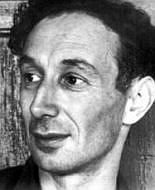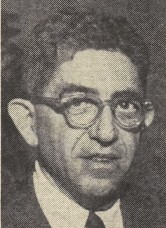
Sir Alfred Jules "Freddie" Ayer was an English philosopher known for his promotion of logical positivism, particularly in his books Language, Truth, and Logic (1936) and The Problem of Knowledge (1956).
Logical positivism, later called logical empiricism, and both of which together are also known as neopositivism, is a movement whose central thesis is the verification principle. This theory of knowledge asserts that only statements verifiable through direct observation or logical proof are meaningful in terms of conveying truth value, information or factual content. Starting in the late 1920s, groups of philosophers, scientists, and mathematicians formed the Berlin Circle and the Vienna Circle, which, in these two cities, would propound the ideas of logical positivism.

The Vienna Circle of logical empiricism was a group of elite philosophers and scientists drawn from the natural and social sciences, logic and mathematics who met regularly from 1924 to 1936 at the University of Vienna, chaired by Moritz Schlick. The Vienna Circle had a profound influence on 20th-century philosophy, especially philosophy of science and analytic philosophy.
Continental philosophy is a term used to describe some philosophers and philosophical traditions that do not fall under the umbrella of analytic philosophy. However, there is no academic consensus on the definition of continental philosophy. Prior to the twentieth century, the term "continental" was used broadly to refer to philosophy from continental Europe. A different use of the term originated among English-speaking philosophers in the second half of the 20th century, who used it to refer to a range of thinkers and traditions outside the analytic movement. Continental philosophy includes German idealism, phenomenology, existentialism, hermeneutics, structuralism, post-structuralism, deconstruction, French feminism, psychoanalytic theory, and the critical theory of the Frankfurt School as well as branches of Freudian, Hegelian and Western Marxist views. There is widespread influence and debate between the analytic and continental traditions; some philosophers see the differences between the two traditions as being based on institutions, relationships, and ideology rather than anything of significant philosophical substance.

Ernst Alfred Cassirer was a German philosopher. Trained within the Neo-Kantian Marburg School, he initially followed his mentor Hermann Cohen in attempting to supply an idealistic philosophy of science.

Alfred Cyril EwingFBA, was an English philosopher who spent most of his career at the University of Cambridge. He was a prolific writer who made contributions to Kant scholarship, metaphysics, epistemology, ethics, and the philosophy of religion.

Ernest Nagel was an American philosopher of science. Along with Rudolf Carnap, Hans Reichenbach, and Carl Hempel, he is sometimes seen as one of the major figures of the logical positivist movement. His 1961 book The Structure of Science is considered a foundational work in the logic of scientific explanation.
Friedrich Waismann was an Austrian mathematician, physicist, and philosopher. He is best known for being a member of the Vienna Circle and one of the key theorists in logical positivism.
Paul Edwards was an Austrian-American moral philosopher. He was the editor-in-chief of MacMillan's eight-volume Encyclopedia of Philosophy from 1967, and lectured at New York University, Brooklyn College and the New School for Social Research from the 1960s to the 1990s.
Johann "Hans" Nelböck was an Austrian former student and murderer of Moritz Schlick, the founder of the group of philosophers and scientists known as the Vienna Circle.

Paul Artin Boghossian is an American philosopher. He is Silver Professor of Philosophy at New York University, where he is chair of the department. His research interests include epistemology, the philosophy of mind, and the philosophy of language. He is also director of the New York Institute of Philosophy and Distinguished Research Professor of Philosophy at the University of Birmingham.
The Institute Vienna Circle (IVC) was founded in October 1991 as an international nonprofit organization dedicated to the work and influence of the Vienna Circle of Logical Empiricism. Since 2011 the IVC was established as a subunit (Department) of the Faculty of Philosophy and Education at the University of Vienna. In 2016 the title of the co-existing society was changed to "Vienna Circle Society" (VCS), which entertains a close co-operation with the IVC. The Institute’s founder and scientific director of the VCS is Friedrich Stadler, who serves as a permanent fellow of the IVC in parallel.
Morton White was an American philosopher and historian of ideas. He was a proponent of a doctrine he called holistic pragmatism and also a noted scholar of American intellectual history. He was a professor in the Department of Philosophy at Harvard from 1953 to 1970. He was Professor Emeritus in the School of Historical Studies at the Institute for Advanced Study in Princeton, NJ, where he served as Professor in the School of Historical Studies from 1970 until he retired in 1987.
The analytic–synthetic distinction is a semantic distinction used primarily in philosophy to distinguish between propositions that are of two types: analytic propositions and synthetic propositions. Analytic propositions are true or not true solely by virtue of their meaning, whereas synthetic propositions' truth, if any, derives from how their meaning relates to the world.
A priori and a posteriori are Latin phrases used in philosophy to distinguish types of knowledge, justification, or argument by their reliance on experience. A priori knowledge is independent from any experience. Examples include mathematics, tautologies and deduction from pure reason. A posteriori knowledge depends on empirical evidence. Examples include most fields of science and aspects of personal knowledge.
Paul Oskar Kristeller was a scholar of Renaissance humanism. He was awarded the Haskins Medal in 1992. He was last active as Professor Emeritus of Philosophy at Columbia University in New York, where he mentored both Irving Louis Horowitz and A. James Gregor.
In logic, contingency is the feature of a statement making it neither necessary nor impossible. Contingency is a fundamental concept of modal logic. Modal logic concerns the manner, or mode, in which statements are true. Contingency is one of three basic modes alongside necessity and possibility. In modal logic, a contingent statement stands in the modal realm between what is necessary and what is impossible, never crossing into the territory of either status. Contingent and necessary statements form the complete set of possible statements. While this definition is widely accepted, the precise distinction between what is contingent and what necessary has been challenged since antiquity.

Friedrich Stadler is an Austrian historian and philosopher and professor for history and philosophy of science at the University of Vienna. He is the founder and long-time director of the Institute Vienna Circle, which was established as a Department of the Faculty of Philosophy and Education of the Vienna University in May 2011. Currently he is a permanent fellow of this department and serves at the same time as the Director of the co-operating Vienna Circle Society, which is the continuation of the former Institute Vienna Circle as an extra-university institution.
Philip Paul Wiener was an American philosopher specializing in pragmatism, Charles S. Peirce, Leibnitz, the history and philosophy of science, and the history of ideas. He co-founded the Journal of the History of Ideas.

Henry Edward Allison was an American scholar of Immanuel Kant, widely considered to be one of the most eminent English-language Kant scholars of the postwar era. He was a professor and chair of the Philosophy Department at the University of California, San Diego and a professor at Boston University.







